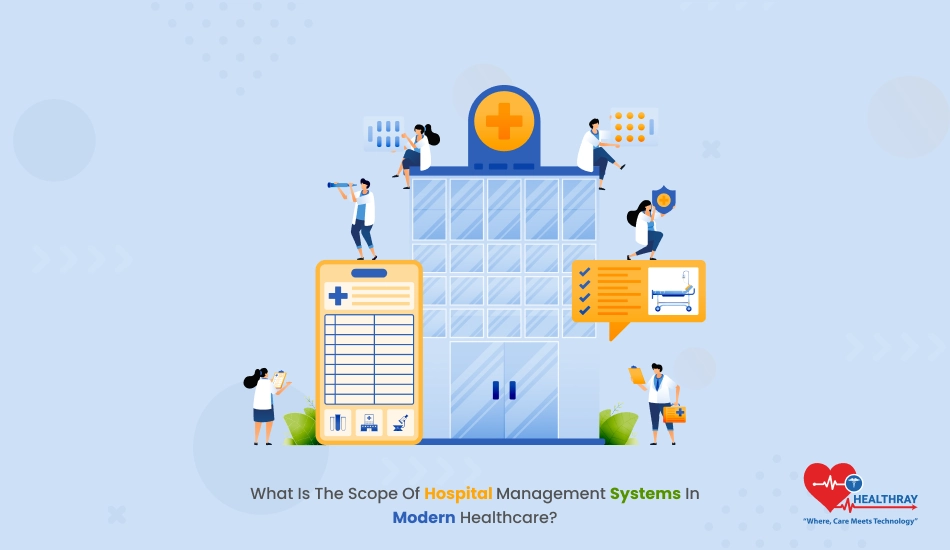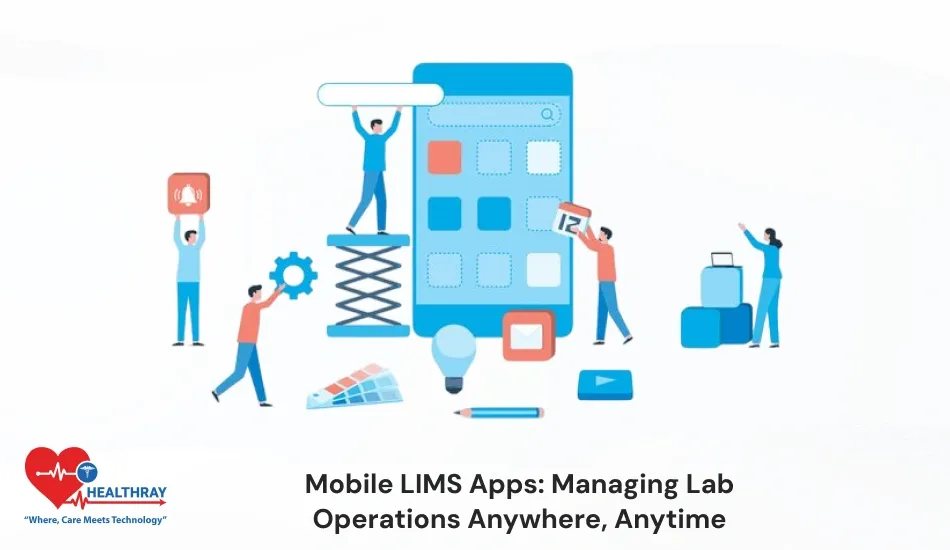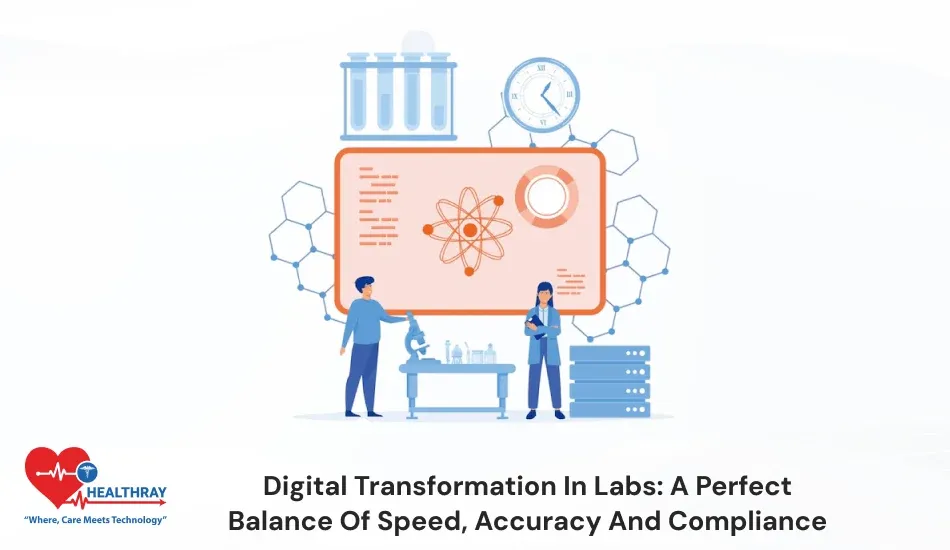Quick Summary
In the modern landscape, where there is a growing demand for developing hospitals subsequently, the supply of hospital management systems increases. It has a wider scope as it manages entire patient and hospital transactions in a unified platform. Also, supports conducting administrative and financial hospital tasks smoothly to enhance workflow efficiency.
Introduction
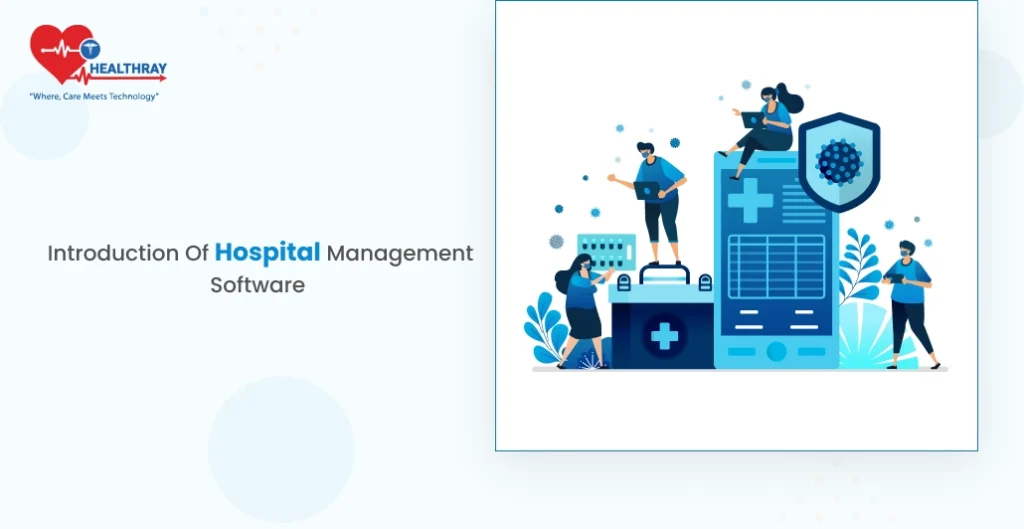
A Hospital Management system is a digital healthcare platform that has numerous functionalities including patient registration, maintaining patient records, scheduling appointments. Additionally, re-schedule appointment, electronic medical records and medical billing. Consequently, It aids in enhancing decision-making power regarding equipment and inventory. Also, supports in patient treatment.
Furthermore, it integrates with different types of medical departments such as laboratory information management systems, pharmacy management systems and electronic health records (EHR). Also, incorporates with human resource management systems.
In the modern scenario, there is a need for sophisticated technology for conducting tasks. Therefore, it saves patient and hospital time.
Streamlining Healthcare Operations with Hospital Management Software
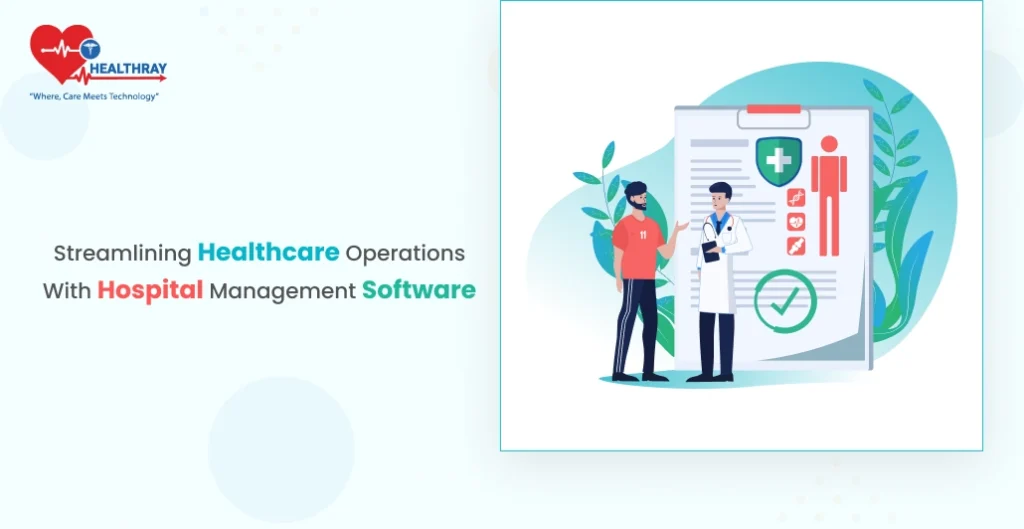
In modern times, there is a wide meaning of the healthcare industry which is beyond the domain of hospitals. Every hospital integrates with other medical sectors to enhance patient care and expand its medical service. However, it is hard to implement in the current times due to traditional healthcare system obstacles. These hurdles are addressed by Healthray’s Hospital Management Software.
The Hospital Management System encompasses a variety of features that simplify hospital department tasks including the administrative department, finance department, patient discharge department, human resource department, radiology department, OD(outpatient) department, and IPD (inpatient) department.
Consequently, hospital management systems effectively maintain healthcare operations. Below are key ways to streamline healthcare operations.
- Patient Management System
- Financial Management System
- Reduced Medical Errors
- Facility Management System
- Data Management System
- Reducing Healthcare costs
- Eradicate Physical Documents
- Inventory Management System
Patient Management System :
Hospital Management System stores patient information in an organized manner that can be fetched easily when required. Also, aids in centralizing patient medical data. Here are some advantages of the patient management system :
- It improves patient care by efficiently managing administrative activities.
- More patient focus can enhance hospital revenue.
- Supports precise diagnosis and treatment.
- Tracking patient data effectively for elevating patient outcomes.
- Maintain historical patient records with their symptoms and vital signs.
Financial Management System :
Generally, financial management requires a systematic procedure for precise accounting, formulating hospital financial strategies to minimize healthcare expenses and generate more revenue.
These procedures include formulating budgeting, maintaining financial documentation, cash management, and adherence to general principles. Let’s explore how Healthray’s HMS aids in managing finance :
- Generating medical bills for maintaining accuracy and tracking payments.
- Automated system to know annual hospital expenses and income statements.
- Mitigating risk by compliance with medical regulations.
- Fast claim processing to improve hospital cash flow.
- Centralizing patient records to eliminate outstanding amounts.
Reduced Medical Errors :
Hospital Information System automates healthcare systems to reduce human efforts in many ways, including :
- Maintaining paper documentation.
- Schedule appointments online.
- Generating digital patient and hospital bills.
- Tracking patient health with progression reports.
- Supports in making critical treatment decisions.
Facility Management System :
Healthcare management systems maintain physical hospital assets to reduce unnecessary hospital expenses and efficiently allocating hospital resources. Also, increases patient experience to the next level. Look below for facility management system benefits :
- Maintain equipment record details with their maintenance and expiry dates.
- Supports in maintaining optimal inventory level by persistently tracking assets.
- Minimize hospital wastage leads to decreased hospital costs.
- Protecting patient information by compliance with security protocols.
- Assist healthcare providers in fast and evident-proof decisions.
Data Management System :
- Practice management software stores. Also, effectively organizes medical records.
- Managing data with adherence to medical regulations enhances operational efficiency.
- Helps to make timely medical actions. Thereby, preventing disease.
- Collection of patient data from several sources such as electronic medical records and medical history. Also includes laboratory test result and prescription documents.
- Ensures adherence to medical regulations.
- Offers an autonomous database for minimizing human errors.
Reducing Healthcare Costs :
- Hospital Management System reduces manual efforts and healthcare staff workload by automation of work. Also,effectively maintaining hospital routine activities for improving patient care.
- Implementing hospital software minimizes medical staff costs and eradicates waste. Additionally, healthcare professionals can save more time which can be utilized in patient care.
- Ease in maintaining patient history for managing critical disease. Additionally, Medical software integrates with the medical department to expand healthcare services. Ultimately, enhancing patient satisfaction.
- This platform monitors the performance of hospital staff continually, improves job satisfaction, and reduces employee turnover. Consequently, decreases recruitment costs.
- Hospital management systems facilitate virtual monitoring and consultation. Thereby, increases the opportunity to earn more income without any additional investment.
- Moreover, it reduces the need for healthcare staff, minimizes human error, and eliminates paper needs.
Step towards digital era with our healthcare solution
Revamp your hospital facilities and embrace change for better healthcare management. Ease in managing and organizing large medical datasets leads to effective analysis. Seize the opportunity now!
Eradicate Physical Documents :
This platform acts as a master information system because it maintains patient and hospital records, and creates business intelligence reports. Also, maintains data security and smoothly conducts hospital operations. Let’s delve into the advantages of digital medical data :
- Ease in sharing medical documents and reports for speedy medical treatment.
- Digital reports reduce ambiguity. Also, provide open communication.
- Maintains data security and transparency of hospital records for patient safety.
- Medical reports and documents are accessible to anyone after the patient’s consent.
- Electronic health record reduces hospital costs and ease in detection of chronic diseases.
Inventory Management System :
Inventory management is a troublesome process for healthcare organizations. Additionally, It’s easy with hospital management systems to track inventory stocks and manages medical equipment. Therefore, it supports maintaining optimal inventory levels by anticipating demand and supply. Also, eliminate expiry medicines. Take a look below at the advantages of managing inventory :
- Eliminate the situation of over and under-stocking.
- Reduced human efforts for detecting expiry dates.
- Maintaining inventory records with vendor details.
- Real-time inventory information for maintaining stock-keeping unit (SKU) performance.
- Manages all inventory from medicine to medical equipment to effectively allocate resources.
The Scope of Hospital Management Systems
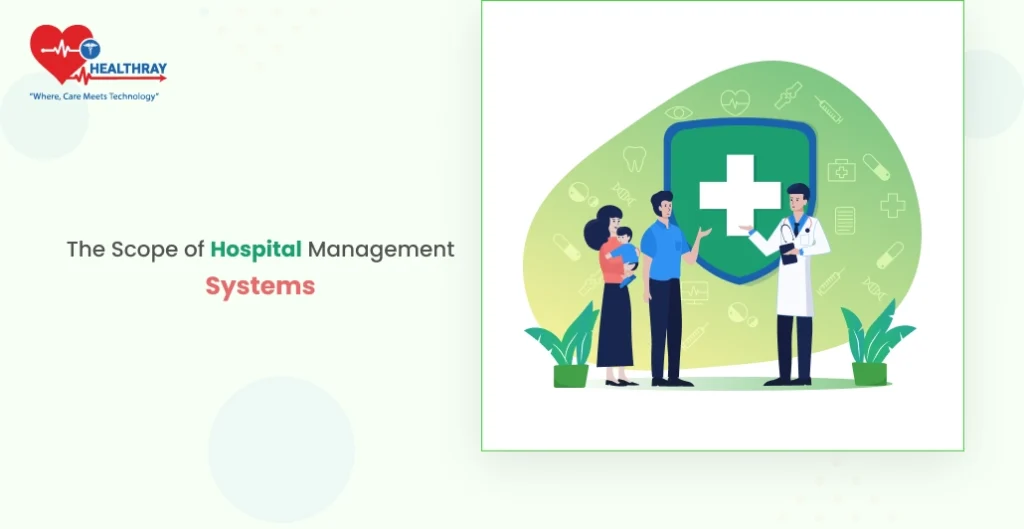
Hospital management software plays a vital role in modern healthcare for computerized medical records and improving the ability to analyze healthcare reports as it depicts medical information in graphical visuals. Consequently, it is easier to interpret and drive meaningful conclusions from it. Below are some vital Healthray’s HMS components :
Insurance Management :
- The Hospital Management System stores medical records in digital format, easing the procedure of insurance verification. Also, helps in fast claim processing.
- Simplifies patient billing procedure by speedy recovery of claim amount.
- Reduces patient transportation expenses and saves their time with effort.
- Supports in maintaining patient flow.
- Fast reimbursement improves hospital cash flow.
- Digital insurance documents enhance coordination among medical professionals and insurance companies.
Accounting Management :
- Hospital Management Software centralized medical records with medical billing details which can be shared with other medical departments for precise financial accounting.
- It aids in cost accounting for managing and controlling direct and indirect expenses. Furthermore, incorporates internal control for protecting medical information from cyber attackers.
Human Resource Management :
The HRMS is the integration of hospital management software, which systematically records healthcare staff information. Also, maintains each record from recruitment to employee performance. Always consider a platform that incorporates HRMS like Healthray, the best hospital management software in India.
It effectively allocates resources within different hospital departments. Additionally, Managing staff performance and editing assignment details from a centralized location. Therefore, it acts as an online HR assistant.
Electronic Health Records :
- Electronic health records are an integral part of hospital management systems. Moreover, It effectively maintains administrative data from appointment transactions to medical billing details.
- Ease patient admission and discharge procedures. Additionally, EHR system aids in generating related documents which can be modified through the customization feature.
- EHR facilitates video consultation to improve healthcare accessibility to towns, villages, and remote areas where it is difficult to have medical facilities.
- This provides accurate and up-to-date information whether it’s related to the patient or hospital, leading to making data-driven decisions.
Management of Administrative tasks :
- Managing patient data and clinical data at a unified platform through automated healthcare systems. Thereby, centralizing medical records. Also, maintains confidentiality of hospital information.
- Ease in compliance with medical regulations which are formulated by authorized medical authorities. Also, manage appointments effectively.
Revenue Cycle Management :
- Revenue cycle management is a troublesome process because it is related to managing hospital finances and patient records from the pre-registration process to the reimbursement process.
- Supports effectively formulated cost-effective strategies, fast reimbursement and precise medical billing. Also, aids in reducing legal costs.
Laboratory Management :
- Managing entire laboratory operations which includes managing staff and ensuring quality control. Also, adherence of regulatory compliance for enhancing patient safety.
- This AI -Enables the hospital management system monitors all inventory. Additionally, maintains records from order details to the lab test results. Also, facilitates sharing lab reports from any location to any medical practitioners.
Operation Theatre Management :
Hospital management software monitors each aspect of the operation room from equipment details to maintaining surgical procedure records.
Managing surgical equipment details with their maintenance and replacement time. Also, effectively coordinating in all surgery phases from pre-operative to post-operative. And in many facilities, these systems also help teams track specialized procedures such as spine surgery, ensuring that every step is documented and supported efficiently.
Supply Management :
The hospital management system eases the supply management process which is a more cumbersome process. Moreover, it includes various steps such as identifying suppliers, generating medical invoices, order details and recording details of receiving inventory. Additionally, distributing inventory in respective departments.
Consequently, minimizes healthcare costs, reduces wastage, and improves operational efficiency.
Managing Pharmacy Operations :
The pharmacy management system balances the supply and demand of medicine stock. Also, records in the ledger format which ease in fetching required information.
Furthermore, pharmacists can counsel patients remotely and send them medicine to their homes. Thereby, reducing patients’ expenses and increasing pharmacy income without incurring additional investment.
How to use patient data for informed decision making?
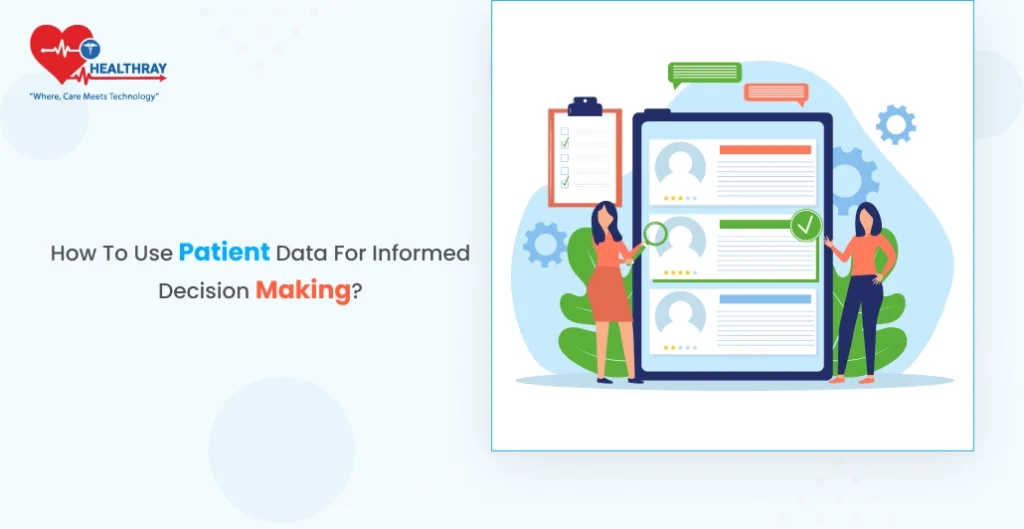
The hospital management system maintains a patient portal that includes patient information with symptoms, vital signs, medical history, and lab test results. Therefore, it centralizes patient information for creating concise medical reports that can be understood by any healthcare provider. Additionally, these medical reports convey meaningful insights. Also, aids in treatment decision-making.
There are numerous advantages of informed decision making such as precise diagnosis with effective patient treatment and improved patient safety. Also, helps in faster health recovery of patients.
Conclusion
The hospital management system can manage different types of hospital departments such as the financial department, administrative department and operation theater department. Also, manages pharmacy department and laboratory department. Thereby, it developed a paperless system that assists in minimizing human error and reducing the need for the health workforce. Thus, enhancing patient engagement.
